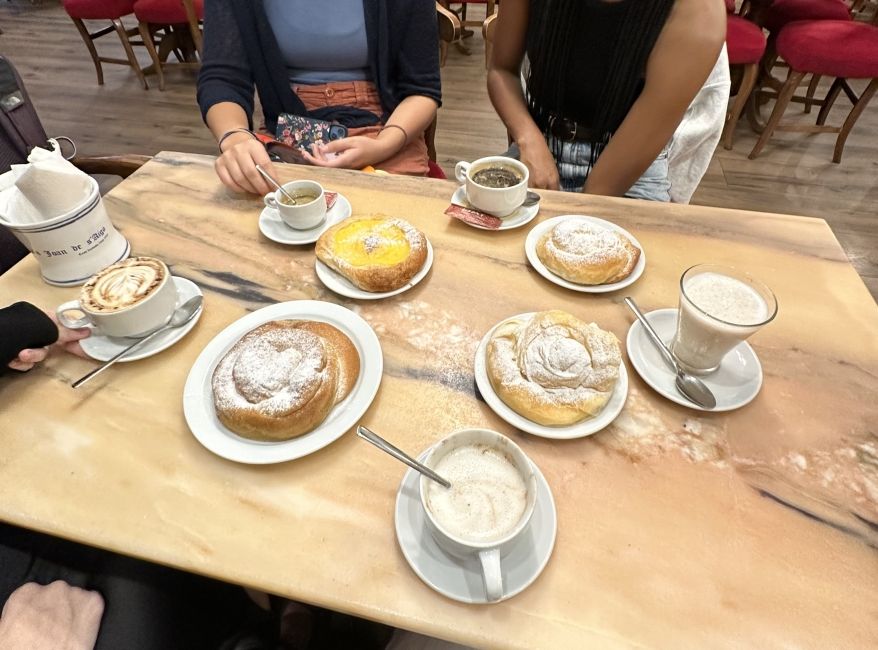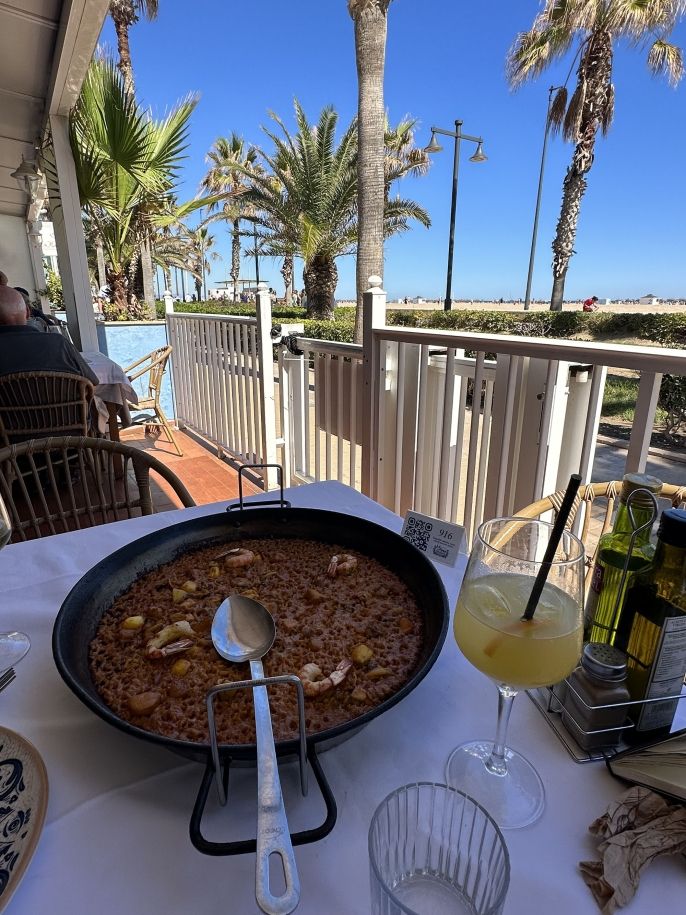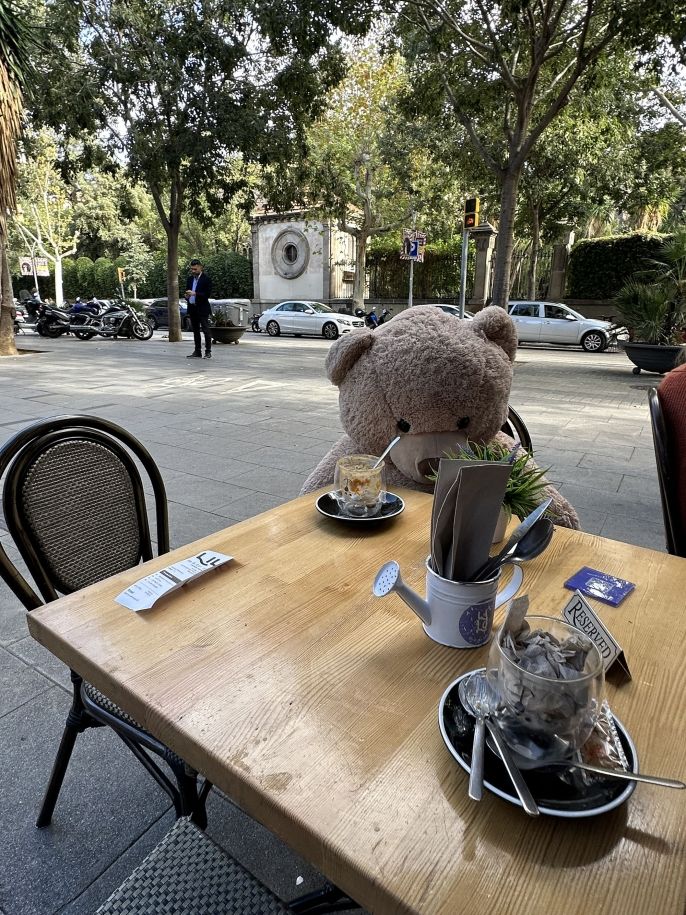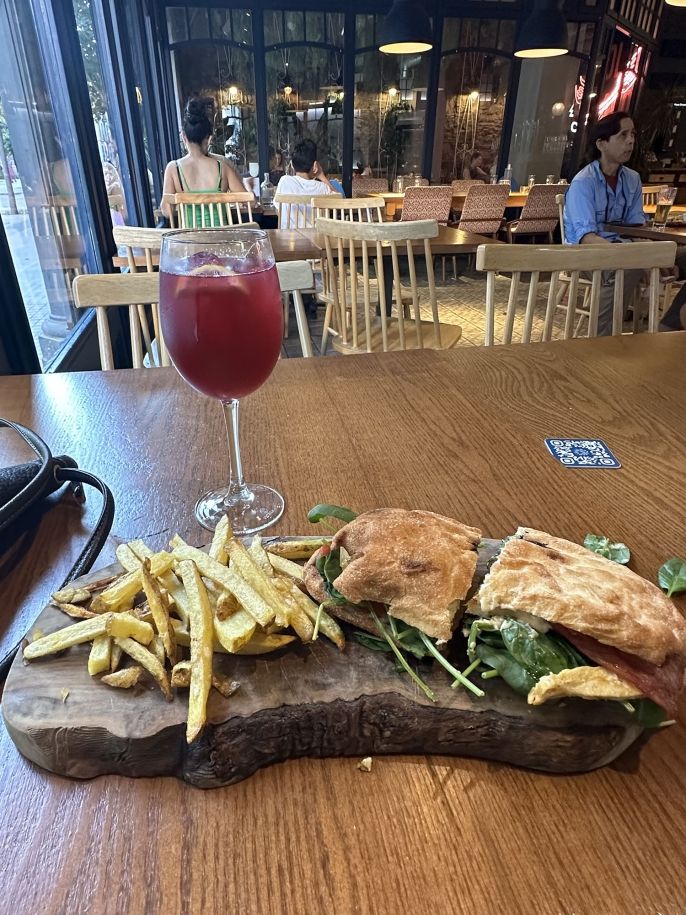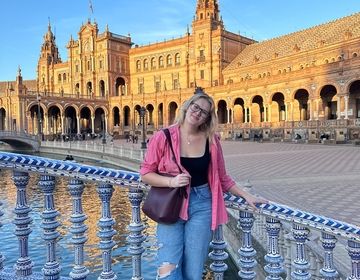Essential Spanish restaurant phrases in Spain
By: Masani Salazar
Ordering food from Spain is a must when going abroad this new experience is cultural and delightful. One way to really immerse yourself in the Spanish language and cuisine is by using simple local phrases to order food and drinks. It's essential to use these sayings to avoid miscommunication when receiving what you ordered. Mind you I came here to learn and practice Spanish. Have become more successful by starting with these basic everyday phrases. Speaking a different language can be intimidating but restaurant talk is small and direct so there is no need to have a full conversation. From my experience here are some helpful common phrases and meal times I use often that have benefited me.
Breakfast (Desayuno)
Starts around 7-9 AM this meal is considered the lightest one of the day. Might include coffee, bread with tomato, pastries, or churros with chocolate! When I go to a cafe or restaurant I would choose either phrase on what I wanted.
- “La carta, por favor” = The menu, please
- "¿Qué recomienda?" = What do you recommend?
When I am ready to order either one of these three options will suffice:
- “Me gustaría” = I would like
- “ Quiseria” = I would like
- “Yo quiero…. Porfavor” = I want … please
Common food items to order:
- “Café”= Coffee
“Con leche”= With milk “Sin leche”= No milk
- “Pan con tomate”= Bread with tomato
- ”Pastelería”= Pastry
- “Churros con chocolate= Churros with chocolate
Lunch (Almuerzo)
Usually starts at 2:00 PM and is considered to be the main meal that is the heaviest and longest. Resulting in a leisurely experience where you are encouraged to wait and stay with no rush. A money-saving tip to do for lunch here is to ask for the daily menu. This includes a drink, appetizer, meal, and dessert for a reasonable price.
- “Tiene el menu del dia”= Do you have a menu of the day
- “Bebida”= Drink
- “Primero” = First course
- “Segundo”= Second course
- “Postre”= Desert
Always remember to use your manners after every ask.
- “Gracias”= Thank you
- “Muchas gracias”= Thank you so much
- “De nada” = You are welcome
- “La comida esta deliciosa”= The food is delicious
- “Mi enhorabuena al cocinero”= My compliments to the chef
Dinner (cena)
Going out for dinner starts way later which is around 9:00, at first I wasn't used to eating so late. Dinner is also considered to be a bit lighter than the main meal of lunch. Usually consists of tapas, salads, meat, seafood, and other local dishes. If you want to try something more authentic I would recommend trying paella specifically in Valencia, or Iberian ham and tapas which are really popular in Barcelona. Drinking sangria is also very common and a part of the culture but is considered to be a sharing and festivity drink. When sangria is ordered for one you are paying more than you need to because it is supposed to come in a large sharing batch. An alternative drink to order is Tinto de Verano a refreshing drink that is similar to sangria. Tinto de verano is meant to be a more straightforward one-serving beverage, unlike Sangria. Essentially it has similar ingredients but costs not as much as a single serving of sangria does. Another option of an alcoholic drink is cava which is Spanish champagne.
Difference between sangria, tinto de verano, and cava
- Sangria has red/white wine, fruit juice has more alcohol content
- Tinto de Verano consists of red wine, orange or lemon fanta, a slice of lemon or lime
- Cava is a sparkling white wine that is the Spanish version of champagne.
Phrases to use for dinnertime
- “Tapas” = Appetizer/snack
- “Ensalada”= Salad
- “Carne”= Meat
other types of meat are
“Jamón Ibérico”= Iberian ham “Pollo”= Chicken
“Bistec”= Steak “Salchicha”= Sausage
- “Mariscos”= Seafood
- “Postre”= Dessert
- "La cuenta, por favor."= The bill, please
- "¿Cuánto cuesta?" = How much does it cost?
Familiarizing yourself with these phrases before you travel will help you immensely. Even using them when you get here is going to further your abroad time resulting in a more hospitable experience. I hope these tips and phrases will help you because, through my own experience they have pushed me to go further in my Spanish skills. Made me appreciate more of the Spanish restaurant culture and food too.
Related Posts
All Things Abroad in Sevilla
By: Nicole Ciechanowicz Deciding to study abroad was one thing that I knew I wanted to do coming into University. As a student planning on going into the medical field... keep reading
A Breathtaking Day Trip from Barcelona to Montserrat
By: Katie McElynn This weekend I took a day trip from Barcelona to Monserrat, and it may be the most must-see place that I have been to in Spain so... keep reading
My Time Abroad with CIEE
By: Daryn Perlman Studying abroad with CIEE has been nothing short of phenomenal. Every single day, I’ve had the opportunity to meet new people, immerse myself in different cultures, and... keep reading
